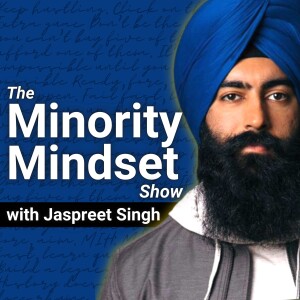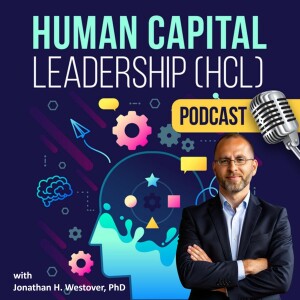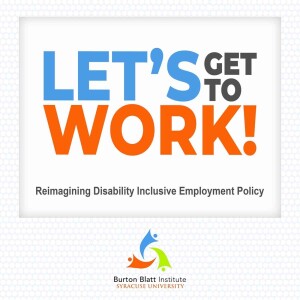

Let’s Get to Work: Reimagining Disability Inclusive Employment Policy
https://feeds.libsyn.com/408305/rssEpisode List
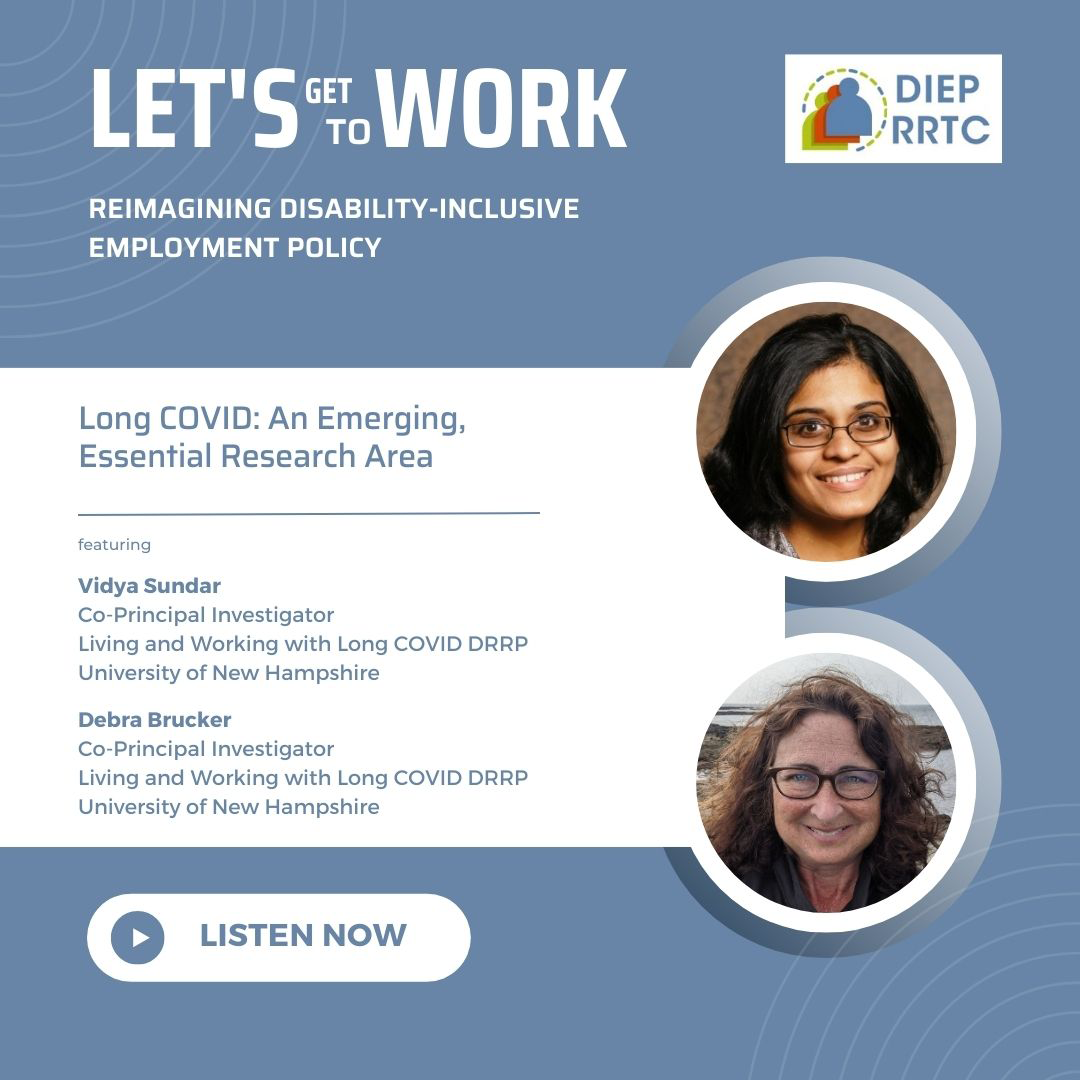
Episode 21: Long COVID: An Emerging, Essential Research Area
Tune in for a conversation about research into long COVID with Dr. Vidya Sundar, Associate Professor of Occupational Therapy at the University of New Hampshire, and Debra Brucker, Associate Professor, Institute on Disability, at the University of New Hampshire.
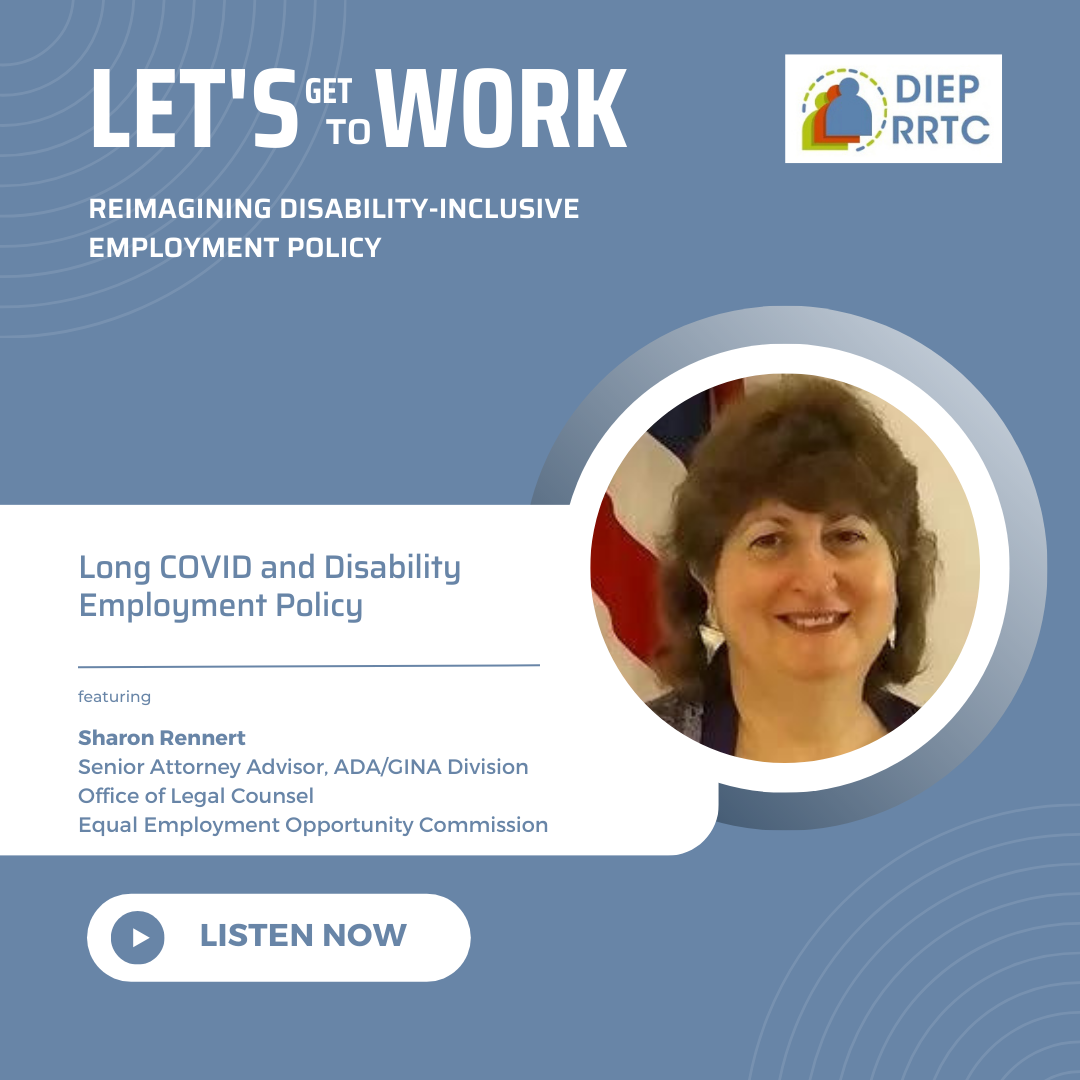
Episode 20: Long COVID and Disability Employment Policy
This episode features a conversation with Sharon Rennert, Senior Attorney Advisor for EEOC about long COVID and disability employment policy.
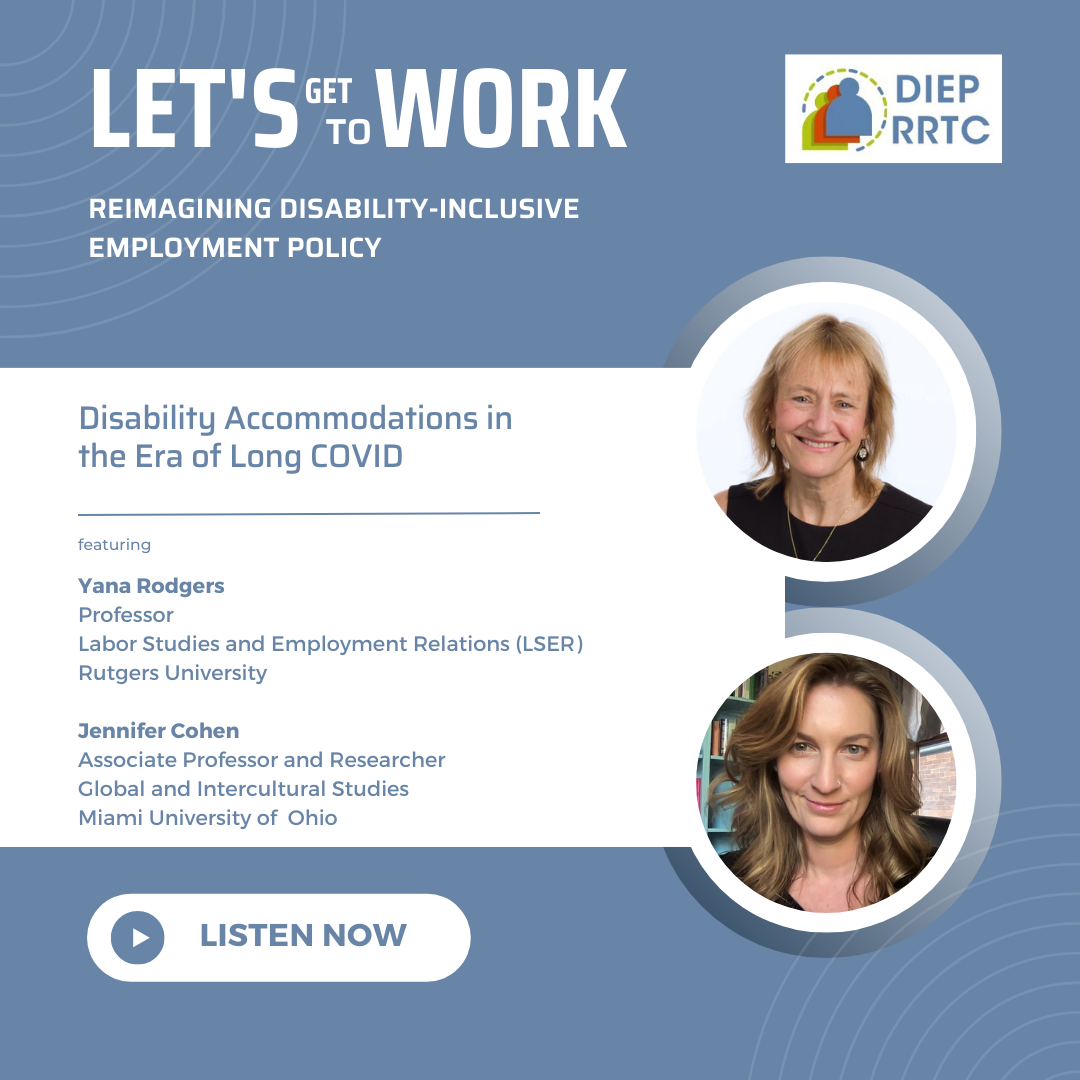
Episode 19: Accommodations in the Era of Long COVID
This episode features a conversation with Yana Rodgers, Professor in the Department of Labor Studies and Employment Relations in the School of Management and Labor Relations at Rutgers University and Jennifer Cohen, Assistant Professor of Global and Intercultural Studies at Miami University about accommodations in the era of long COVID.
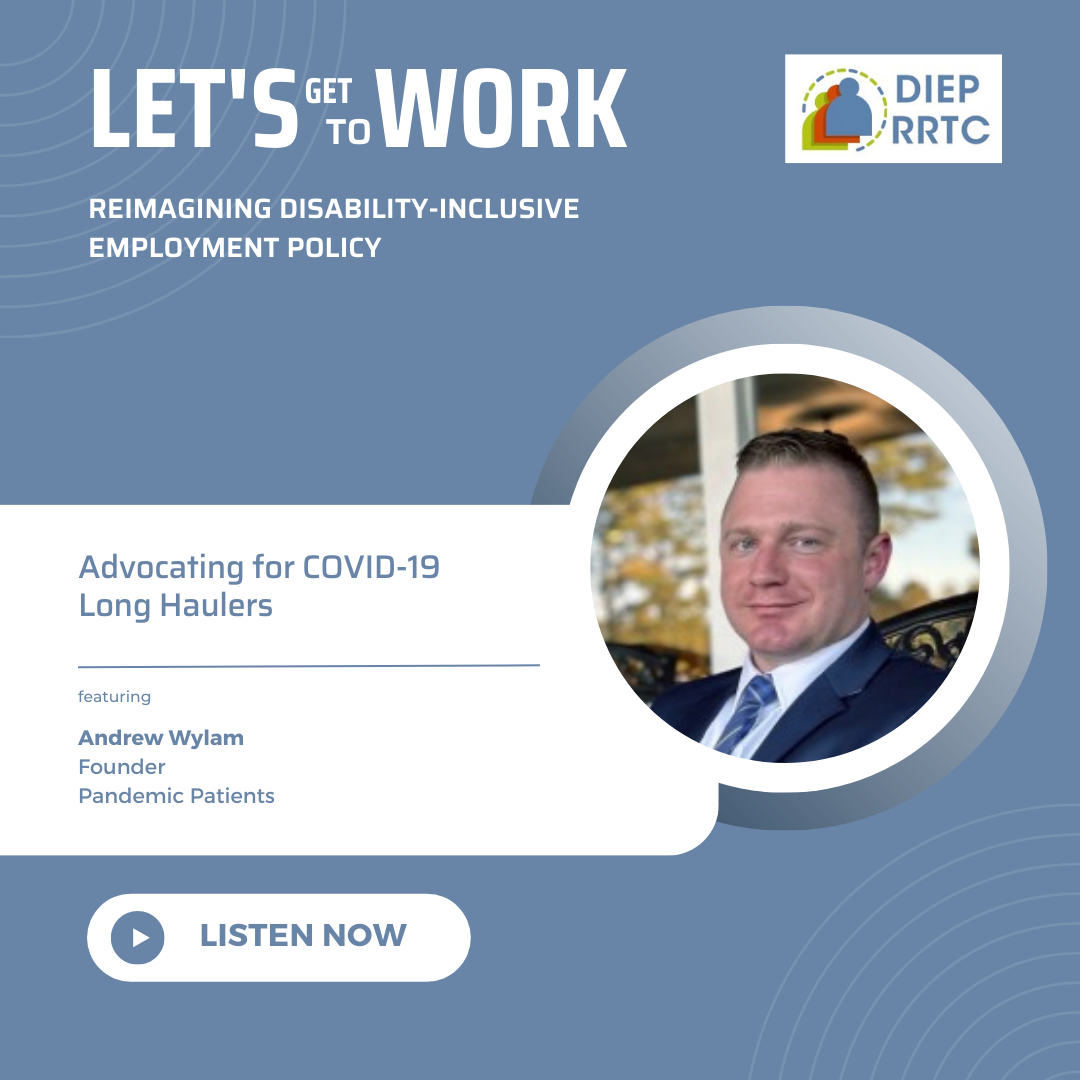
Episode 18: Advocating for Long Haulers
Tune in for a conversation about advocating for COVID long haulers, with Andrew Wylam, President and co-founder of Pandemic Patients.
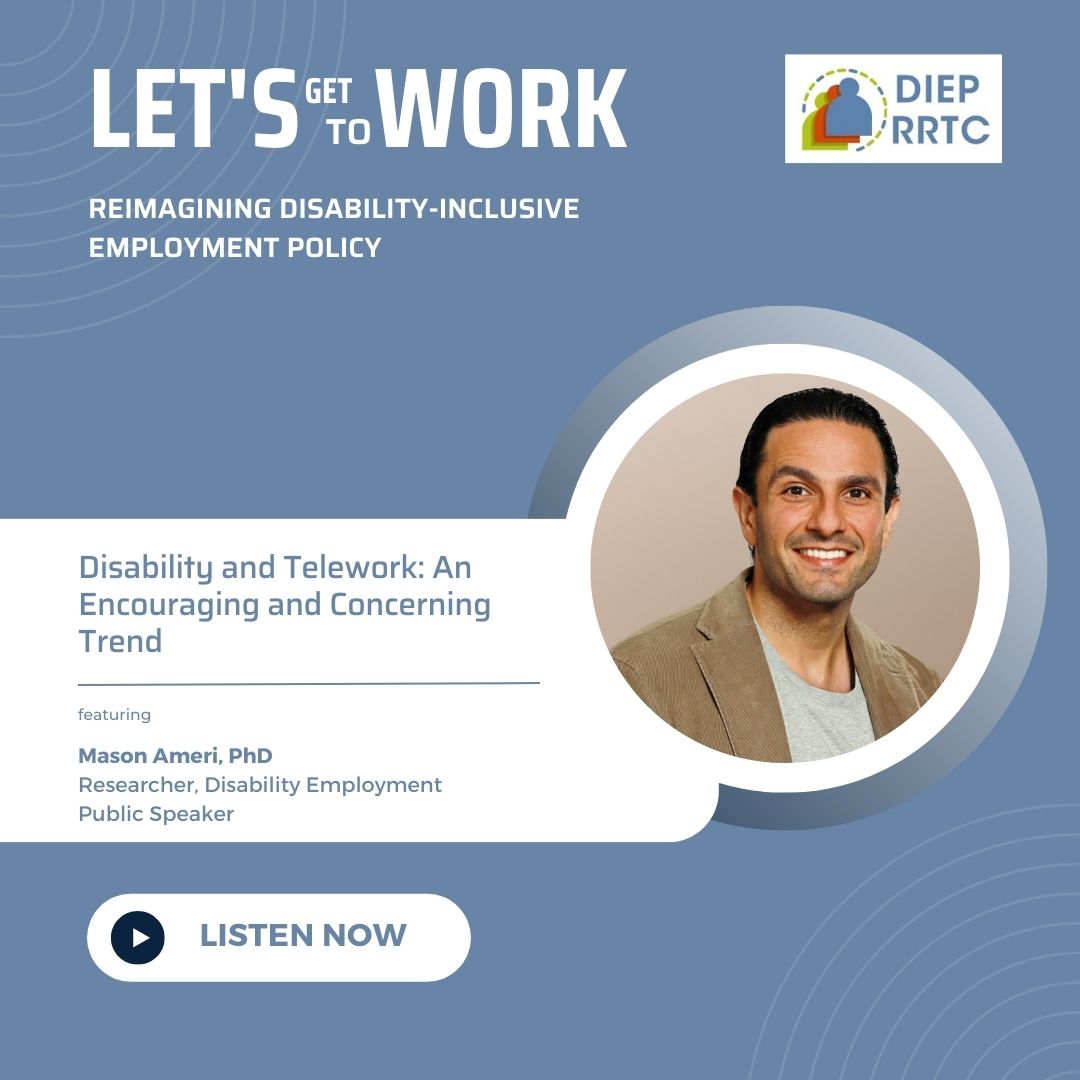
Episode 17: Mason Ameri – Disability and Telework: An Encouraging and Concerning Trend
It is safe to say that the shift to remote work during the pandemic has transformed the outlook of disability employment not just for the near future but for years to come. Above all, the emphasis on telework for the general workforce has deconstructed the notions that led many employers to hesitate to provide workers with opportunities to work remotely, Mason Ameri, associate professor at the Rutgers University Business School, said. In this episode, Mason discusses the future of work, particularly relating to telework and what it means for people with disabilities. He reflects on the importance of the workforce returning to the mindset of the early 2000s, when employers embraced the mindset of “so long as you’re productive, who cares where you work from or for how long,” which changed when the economic recession began and employers began demanding in-person work and people with disabilities were working remotely at higher rates compared to nondisabled people. When the pandemic hit and the workforce went remote in 2020, however, the trend was flipped and a major inequity in occupational distribution was uncovered, Mason cites. At the same time, this could lead to challenges for people with disabilities. Mason fears that remote work will become the default way employers will accommodate people with disabilities, leading them to be somewhat excluded from the workplace. If employees with disabilities are not visible in the workplace, then they may miss out on developing relationships that often initiate opportunities for promotions. He shares his other concerns with the future of work, whether the strategic and sometimes misleading approaches to initiatives for diversity, equity and inclusion or the lack of investment in students with disabilities in the STEM fields and beyond.
Create Your Podcast In Minutes
- Full-featured podcast site
- Unlimited storage and bandwidth
- Comprehensive podcast stats
- Distribute to Apple Podcasts, Spotify, and more
- Make money with your podcast
